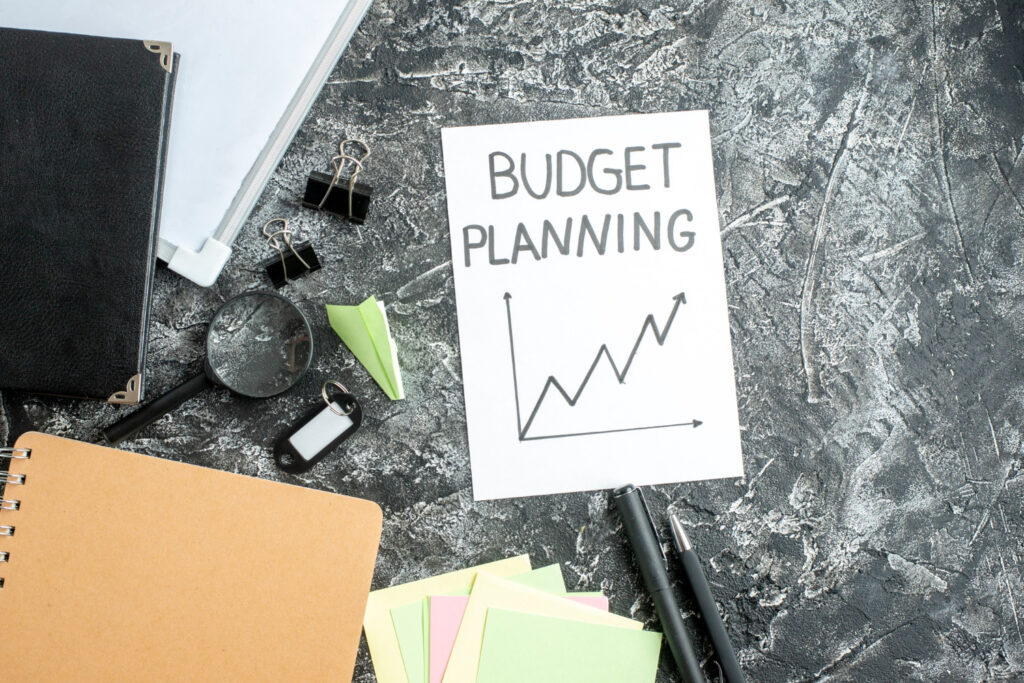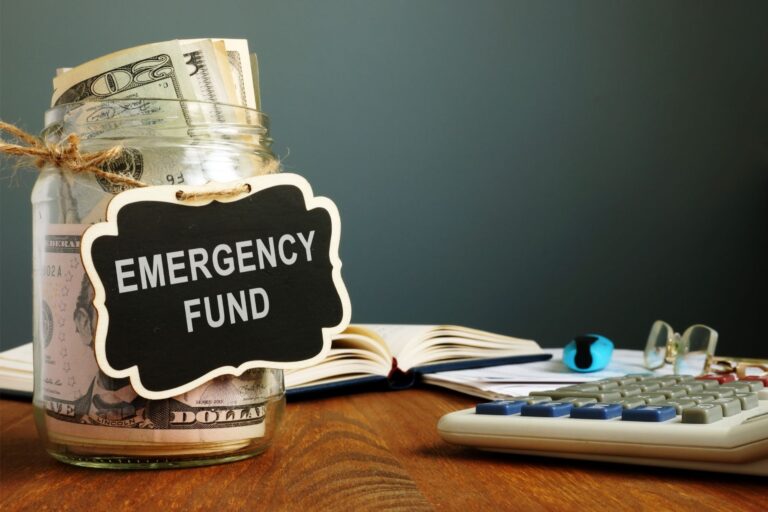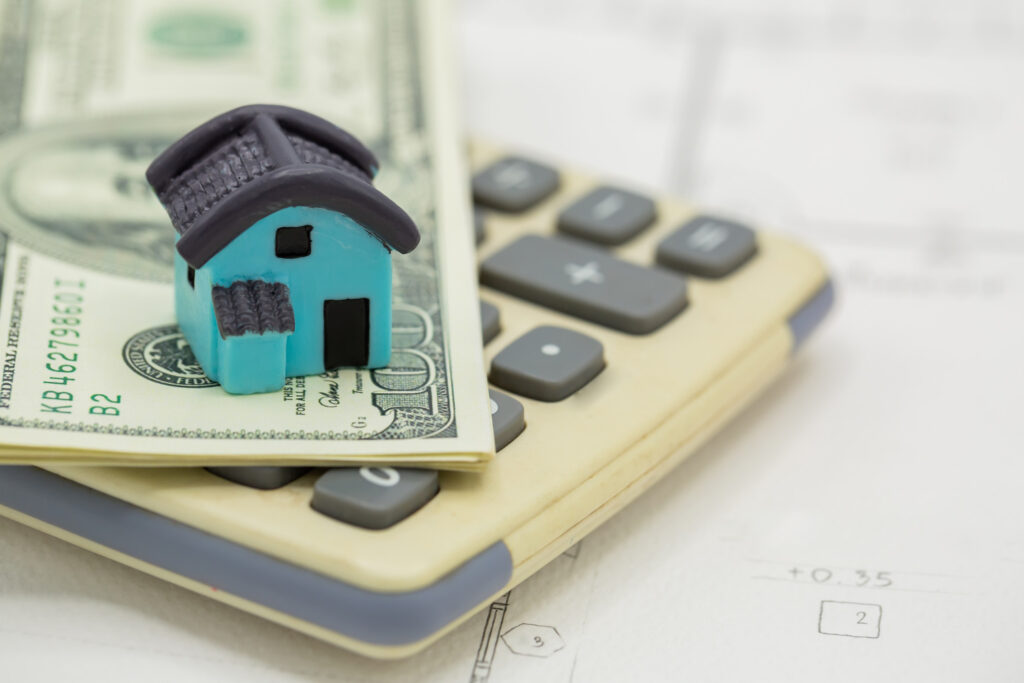How To Achieve Financial Freedom: Your Complete Roadmap to Living Life on Your Terms

Let’s be real for a second. When was the last time you checked your bank account without holding your breath? If you’re like most people, money stress is that annoying background noise that never quite goes away. But here’s the thing: it doesn’t have to be that way.
Financial freedom isn’t some fairy tale reserved for trust fund babies or lottery winners. It’s actually within reach for regular folks like you and me.
I’m talking about waking up without that pit in your stomach about bills, being able to say yes to opportunities without checking your balance first, and actually sleeping through the night without money worries keeping you up.
Throughout my years working in finance and managing my own money (with plenty of faceplants along the way, trust me), I’ve learned that financial freedom is less about having a million dollars and more about having options.
It’s about building a life where money works for you instead of you working yourself to death for money.
So grab your coffee, get comfortable, and let’s talk about how you can actually make this happen. No get-rich-quick schemes, no complicated jargon, just real strategies that work.
What Is Financial Freedom?
Before we get into the how, let’s nail down the what. Financial freedom means different things to different people, but at its core, it’s pretty simple: having enough money to live the life you want without constantly stressing about your bank balance.
Think about it this way. Financial freedom is when you can buy groceries without mentally calculating if you’ll have enough left for gas. It’s being able to handle an unexpected car repair without having a mini panic attack. It’s having the choice to take that job you’re passionate about instead of the one that just pays more.
For me, financial freedom hit differently when I realized it wasn’t about being filthy rich. It was about having control. Control over my time, my choices, and my future.
When you’re financially free, you’re not chained to a paycheck or drowning in debt payments. You’ve got breathing room, and honestly? That breathing room changes everything.
Some people think financial freedom means retiring at 35 and sipping cocktails on a beach forever. For others, it’s simply not having to check their account before going out to dinner. The beauty is that you get to define what it means for you.
What Should I Do To Achieve Financial Freedom?
Here’s where the rubber meets the road. Achieving financial freedom isn’t about one magic move. It’s about stacking good decisions on top of each other until you’ve built something solid.
The absolute first step? Get out of debt. I know, I know, easier said than done. But here’s the brutal truth: you cannot build wealth while you’re sending half your paycheck to credit card companies and loan servicers. It’s like trying to fill a bathtub with the drain wide open.
When I started my finance career, I watched countless people make decent money but stay broke because debt was eating them alive. The interest alone was keeping them stuck in place.
Breaking free from debt isn’t just about numbers on a spreadsheet. It’s about reclaiming your income so you can actually use it to build the life you want.
Once you’ve tackled debt (or while you’re working on it), you need to start thinking differently about money. Instead of seeing it as something that just flows in and out, start viewing it as a tool.
A tool for building security, creating opportunities, and yes, eventually achieving that sweet, sweet financial freedom.
Benefits Of Achieving Financial Freedom
Okay, so why should you even care about financial freedom? What’s in it for you? Let me break down the real benefits that go way beyond just having more zeros in your bank account.
1. Achieving Financial Freedom Improves Your Quality Of Life
Remember when you were a kid and you could just do things without worrying about the cost? Financial freedom brings back some of that magic. When money isn’t constantly holding you back, you can actually live.
Want to take your family on that vacation you’ve been talking about for years? Done. Feel like switching careers to something you’re actually passionate about? Go for it. Need to take a mental health day without calculating lost wages? You’ve got it covered.
I’ve seen people transform their entire existence once they achieved financial stability. Suddenly, they’re taking cooking classes, learning new skills, spending quality time with their kids instead of working three jobs.
Life stops being about survival and starts being about actually living. And honestly? That’s what it’s all about.
The freedom to pursue what matters to you without money being the deciding factor in every single decision? That’s priceless. Well, technically it has a price, but you get what I mean. 🙂
2. Achieving Financial Freedom Increases Peace Of Mind
Let’s talk about something we don’t discuss enough: the mental weight of financial stress. It’s exhausting, right? That constant low-level anxiety about money affects everything from your sleep to your relationships to your physical health.
Financial freedom flips that script completely. Imagine waking up and not immediately thinking about bills. Picture yourself going through your day without that nagging worry in the back of your mind.
It’s like someone finally turned off that annoying alarm that’s been blaring in your head for years.
When I finally got my finances sorted out, the peace of mind hit me harder than I expected. I didn’t realize how much mental energy I’d been spending on money worries until I didn’t have to anymore.
Suddenly, I could focus on other things. My relationships improved. My work got better. I was just happier overall.
Peace of mind isn’t some luxury item. It’s a fundamental part of living a good life, and financial freedom is one of the most reliable ways to get it.
3. Achieving Financial Freedom Reduces Stress
Stress and money go together like peanut butter and jelly, except way less enjoyable. Financial stress is one of the leading causes of anxiety, depression, and even physical health problems. Your body literally responds to money worries like it’s being chased by a bear.
I remember my early twenties when I was juggling student loans, credit card debt, and trying to make rent every month. My stress levels were through the roof.
I was irritable, couldn’t sleep, and honestly felt like I was drowning. Everything felt harder because I was carrying this massive financial burden on my shoulders.
When you achieve financial freedom, that weight lifts. Your cortisol levels drop. You sleep better. You’re less likely to snap at your partner over small things because you’re not constantly on edge about money. The physical and mental health benefits alone make the journey worth it.
Think about how much better you’d feel if money stress wasn’t part of your daily life. That’s not a fantasy. That’s what financial freedom delivers.
4. Achieving Financial Freedom Improves Your Relationships With Others
Money problems don’t just affect your wallet. They bleed into every relationship you have. Ever snapped at your spouse because you’re stressed about bills?
Had to cancel plans with friends because you’re broke? Felt guilty about not being able to give your kids the things they want?
Financial stress puts strain on relationships in ways we don’t always recognize. When you’re working multiple jobs just to stay afloat, you don’t have time for the people you love. When you’re worried about money, you’re not fully present even when you are around.
Financial freedom changes the game. You can actually show up for the people who matter. You’ve got time to spend with your kids because you’re not working 80-hour weeks.
You can be generous with friends and family without resentment. You can focus on building connections instead of just surviving.
I’ve watched marriages improve, friendships deepen, and family bonds strengthen when people get their finances under control. Money isn’t everything, but the lack of money problems sure does make relationships easier.
10 Steps To Achieve Financial Freedom
Alright, enough theory. Let’s get into the practical stuff. These ten steps aren’t some magic formula, but they’re tried and true strategies that actually work. I’ve used them, I’ve taught them, and I’ve seen them transform people’s financial lives.
1. Create A Budget

I know, I know. Budgeting sounds about as fun as watching paint dry. But hear me out, because this is where everything starts. You cannot manage what you don’t measure, and a budget is simply a plan for your money.
Think of your budget as giving every dollar a job. Instead of money just randomly flowing out of your account and leaving you wondering where it all went, you’re the boss telling your money where to go. Rent? You’ve got a job. Groceries? Here’s your assignment. Savings? You’re coming with me.
When I first started budgeting seriously, I was shocked at where my money was actually going. Those daily coffee runs? Adding up to over $150 a month. Streaming services I forgot I had? Another $50 down the drain. Once you see it in black and white, you can make real changes.
Start simple. Track your income and expenses for a month. Then create categories: housing, food, transportation, debt payments, savings, and whatever else applies to your life.
The goal is to have your income minus your expenses equal zero. Not because you’re spending everything, but because every dollar has a designated purpose, including the ones going to savings.
There are tons of budgeting apps out there like Mint, YNAB (You Need A Budget), or EveryDollar that make this easier. Pick one that works for you and stick with it. The first month might feel awkward, but I promise it gets easier.
2. Avoid Debt Completely
Let me be blunt: debt is the enemy of financial freedom. It’s like trying to run a race with a backpack full of rocks. Sure, you can still move forward, but man, it’s so much harder than it needs to be.
If you’ve got debt right now, whether it’s credit cards, student loans, car payments, or whatever, paying it off needs to be a top priority. Every dollar you send to interest is a dollar that can’t work for your future. It’s money you earned that’s just evaporating.
I recommend the debt snowball method for most people. List your debts from smallest to largest, make minimum payments on everything, and throw every extra dollar at the smallest debt.
Once that’s gone, roll that payment into the next smallest debt. The psychological wins you get from knocking out debts one by one? That momentum is real and it keeps you going.
Some people prefer the avalanche method (highest interest rate first), and that’s fine too. The best debt payoff strategy is the one you’ll actually stick with. The key is having a strategy and working it consistently.
Once you’re debt-free, stay that way. Use credit cards responsibly if you use them at all (paying them off monthly), and don’t finance things you can’t afford. Future you will thank present you for this discipline.
3. Save For Emergencies

Life has a funny way of throwing curveballs right when you least expect them. Your car breaks down. Your kid needs emergency dental work. Your company does layoffs. Without an emergency fund, these situations send you straight into debt. With one? They’re just annoying inconveniences.
An emergency fund is your financial shock absorber. It’s money sitting in a savings account (not invested, just safe and accessible) that’s there for actual emergencies. And no, a sale at your favorite store doesn’t count as an emergency, sorry. 🙂
The standard advice is to save 3-6 months of living expenses. If you’re just starting out, that number probably sounds impossible. That’s okay. Start with $1,000. That’ll cover most small emergencies and give you a buffer. Then work your way up to one month of expenses, then three, then six.
I cannot stress enough how much this changes your financial life. The first time I had a major unexpected expense after building my emergency fund, I just transferred the money and handled it. No stress, no panic, no debt. That feeling of security? Absolutely worth every dollar saved.
Set up automatic transfers to your emergency fund every payday. Even if it’s just $25 or $50, that adds up over time. Make it non-negotiable, like any other bill. Your future self will be incredibly grateful when life inevitably happens.
4. Seize Investment Opportunities
Here’s a truth bomb: you will never save your way to wealth. Saving is important, but investing is what actually builds wealth over time. Your money needs to work for you, not just sit there looking pretty.
If your employer offers a 401(k) match, you need to be contributing at least enough to get the full match. That’s literally free money. I’ve met people who weren’t taking advantage of their company match, and it physically hurt me. Don’t be that person.
The beautiful thing about retirement accounts like 401(k)s and IRAs is the tax advantages. You’re either getting a tax break now (traditional) or tax-free growth and withdrawals later (Roth). Either way, you’re coming out ahead compared to regular investment accounts.
Start as early as you possibly can. Thanks to compound interest, time is your biggest asset when investing. A 25-year-old investing $200 a month will end up with way more than a 35-year-old investing $400 a month, even though the older person is putting in more money. That’s the magic of compound growth.
Don’t let investing intimidate you. You don’t need to be a stock market genius. Low-cost index funds are perfect for most people. They’re diversified, have low fees, and historically have provided solid returns over the long term. Set up automatic contributions and let time do its thing.
5. Set Financial Goals

Ever tried to hit a target you can’t see? That’s what managing money without goals feels like. You’re just kind of wandering around hoping things work out. Setting clear financial goals gives you direction and purpose.
Your goals need to be specific and measurable. “Save more money” is not a goal. It’s a wish. “Save $10,000 for an emergency fund by December 31st” is a goal. See the difference? One is vague and easy to ignore. The other is concrete and actionable.
I recommend having short-term goals (achievable within a year), medium-term goals (1-5 years), and long-term goals (5+ years). Maybe your short-term goal is paying off your credit card. Medium-term could be saving for a house down payment. Long-term might be building a retirement fund that lets you retire at 60.
Write these goals down. Seriously, grab a piece of paper or open a note on your phone right now and write them out. There’s something about seeing your goals in writing that makes them real. Put them somewhere you’ll see them regularly to keep yourself accountable.
And here’s the important part: attach deadlines to your goals. A goal without a deadline is just a dream. The deadline creates urgency and helps you break down what you need to do each month or week to make it happen.
Then track your progress. Celebrate the wins along the way. This journey is long, and you need to acknowledge the milestones.
6. Live Below Your Means
This is probably the most important habit for achieving financial freedom, and it’s the one most people struggle with. Living below your means simply means spending less than you earn.
Sounds simple, right? But in a world of social media flexing and keeping up with the Joneses, it’s harder than it sounds.
The gap between what you earn and what you spend is where wealth is built. If you make $4,000 a month and spend $4,000, you’re not building anything.
You’re just treading water. But if you make $4,000 and spend $3,000? That $1,000 gap is your wealth-building machine.
Living below your means doesn’t mean being cheap or miserable. It means being intentional. It means not buying a car you can barely afford just because it looks cool. It means choosing a comfortable apartment over a fancy one that stretches your budget. It means prioritizing financial security over impressing people who probably don’t care anyway.
I’ve known people who made six figures and were broke, and people who made $40,000 and were building wealth.
The difference? The high earner spent everything (and then some), while the modest earner lived below their means and invested the difference.
One practical tip: when you get a raise, don’t immediately inflate your lifestyle. Keep living on your current budget and funnel that extra income toward your financial goals. This is called avoiding lifestyle inflation, and it’s a game-changer. Your future financially-free self will high-five you for this.
7. Help Your Kids Save For College
If you’ve got kids, you know college costs are absolutely insane. The average cost of a four-year degree can easily hit six figures. That’s mortgage-level money. If you don’t want your kids starting their adult lives buried in student loan debt, you need to start planning now.
An Education Savings Account (ESA), also called a Coverdell ESA, is a fantastic tool. You can contribute up to $2,000 per year per child, and the money grows tax-free.
When your kid uses it for qualified education expenses, they don’t pay taxes on the withdrawals either. It’s basically a Roth IRA for education.
Another option is a 529 plan, which has higher contribution limits and similar tax benefits. Each state offers different plans with different investment options, so do your homework. Some states even give you a tax deduction for contributions.
Start early and contribute consistently. Even small amounts add up over 18 years thanks to compound growth. If you can save $200 a month from the time your child is born, you could have over $75,000 by the time they’re ready for college (assuming a 7% average return).
Now, here’s an important note: don’t sacrifice your retirement to pay for your kids’ college. I know that sounds harsh, but hear me out. Your kids can get loans for college if needed. You cannot get loans for retirement.
Make sure you’re on track with your own retirement savings before putting money toward college funds. The best gift you can give your kids is not being a financial burden on them in your old age.
8. Pay Off Your Mortgage Early

Your mortgage is probably your biggest monthly expense. Imagine what your life would look like without that payment. That’s not just a nice thought, it’s an achievable goal that can accelerate your path to financial freedom.
The standard 30-year mortgage means you’re making payments for three decades. That’s a long time to have that obligation hanging over your head. But here’s the thing: you don’t have to take the full 30 years.
Making extra payments toward your principal can shave years off your mortgage and save you tens of thousands in interest.
Even one extra payment per year can make a significant difference. Some people do this by making biweekly payments instead of monthly (which results in 13 full payments per year instead of 12). Others just throw any extra money at the principal whenever they can.
I’ve seen people pay off 30-year mortgages in 15 years or less by being aggressive about extra payments. The freedom they feel when they make that final payment? It’s life-changing. Suddenly, they’ve got hundreds or thousands of extra dollars every month to invest, save, or use however they want.
If you’re shopping for a house, be smart about what you buy. Just because a bank approves you for a certain amount doesn’t mean you should spend it all. Buy less house than you can afford.
Your mortgage payment (including taxes and insurance) should be no more than 25% of your take-home pay. This keeps you from being house-poor and gives you room to breathe financially.
9. Be Smart About Insurance
Insurance might not be the most exciting topic (okay, it’s definitely not), but it’s absolutely critical for protecting your financial freedom. All it takes is one major disaster to wipe out years of financial progress if you’re not properly insured.
Think of insurance as your financial defense system. You’ve got offense (earning, saving, investing) and defense (insurance protecting what you’ve built). You need both to win the game.
Here’s what you need: health insurance is non-negotiable. Medical debt is one of the leading causes of bankruptcy in America. One serious illness or accident without insurance can destroy you financially. Get the best health coverage you can afford.
Term life insurance is essential if anyone depends on your income. If you died tomorrow, would your family be okay financially? If not, you need life insurance. Term life is cheap and straightforward. Skip the whole life policies that mix insurance with investing, they’re usually a terrible deal.
Homeowners or renters insurance protects your stuff and provides liability coverage. Auto insurance is legally required in most places, but make sure you’ve got adequate coverage, not just the minimum. Long-term disability insurance protects your income if you can’t work due to illness or injury (more likely than you think).
As your wealth grows, consider an umbrella policy for extra liability protection and long-term care insurance to protect your assets if you need extended care in old age. Identity theft protection is also worth considering in our digital world.
Yes, insurance costs money. But it’s infinitely cheaper than the disasters it protects you from. Don’t skip this step. I’ve seen too many people lose everything because they were underinsured or uninsured when disaster struck.
10. Have A Smart Career Choice
Your career is your wealth-building engine. It’s where the money comes from that you’ll save, invest, and use to build financial freedom. So choosing the right career path isn’t just about following your passion (though that matters too), it’s about setting yourself up for financial success.
Before committing to a career path, ask yourself some hard questions. Where will this career be in 10 or 20 years? Is it growing or declining? What’s the income potential? Are there opportunities for advancement? Does it offer benefits like health insurance and retirement matching?
I’m not saying you should only chase money. A high-paying job that makes you miserable isn’t worth it. But a job you love that doesn’t pay enough to meet your basic needs isn’t sustainable either.
The sweet spot is finding something you enjoy (or at least don’t hate) that also pays well enough to support your financial goals.
Don’t be afraid to invest in yourself through education, certifications, or skill development if it’ll boost your earning potential. Sometimes spending money on the right training or degree pays for itself many times over in increased earnings.
Also, think about side hustles or multiple income streams. Relying on a single income source is risky. Having a side business, freelance work, or passive income streams provides security and accelerates your path to financial freedom. Plus, if you lose your main job, you’re not starting from zero.
Finally, don’t stay stuck in a job that’s not serving you just because it’s comfortable. If you’re underpaid, undervalued, or stuck with no growth potential, start looking for something better. Your career should support your financial goals, not hold them back.
Final Thoughts
Let’s bring this all together. Financial freedom isn’t some impossible dream reserved for the lucky few. It’s an achievable goal for anyone willing to make smart decisions consistently over time.
Start with the basics: create a budget, eliminate debt, and build an emergency fund. These three steps alone will transform your financial life. From there, start investing for the long term, set clear goals, and live below your means.
If you’ve got kids, help them avoid student debt. Work on paying off your mortgage early. Protect everything with proper insurance. And choose a career path that supports your financial goals.
None of this is complicated, but it does require discipline and patience. Financial freedom is a marathon, not a sprint. There will be setbacks and challenges along the way. That’s normal. What matters is that you keep moving forward, making progress one decision at a time.
The beautiful thing about achieving financial freedom is what it enables. You’re not just building a bigger bank account. You’re building options. The option to retire early if you want. The option to take a lower-paying job you love.
The option to help your kids without stress. The option to be generous. The option to just breathe without constant money worries.
Track your progress and celebrate the wins. Paid off a credit card? That’s huge! Hit your emergency fund goal? Amazing! These milestones matter. They’re proof that you’re doing it, that financial freedom isn’t just a dream but something you’re actively building.
Remember, the goal isn’t just to be rich. It’s to be free. Free from money stress, free from debt, free to make choices based on what you want rather than what you can afford. That’s what financial freedom really means, and honestly? That’s worth every bit of effort it takes to get there.
So start today. Not tomorrow, not next month, today. Pick one thing from this list and do it. Create that budget. Make an extra debt payment. Open that retirement account.
Whatever it is, take action. Because the path to financial freedom is built one step at a time, and the best time to take that first step is right now.








